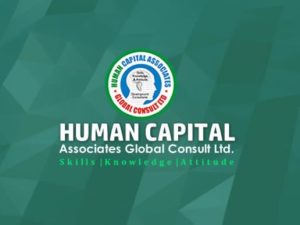Developing a Sustainable Best Practice Drinking Water Quality Management
March 18 – 22, 2024, 1st Run: Lagos & Abuja
October 28 – Nov. 1, 2024, 2nd Run: Lagos & Port Harcourt
For Tutor -Led Class: 9am – 4:30pm
Workshop fee: N250, 000 per Participant
For online: Delivery via Zoom
Online course fee: N200, 000 per Participant
Available for In-plant Training
Program Overview:
This course aims to equip participants with comprehensive knowledge and practical skills in developing sustainable best practices for managing drinking water quality. With increasing concerns over water contamination and scarcity, there is a growing need for professionals who can ensure the safety and sustainability of drinking water sources. This course covers a wide range of topics essential for effective water quality management, including regulatory frameworks, risk assessment, treatment technologies, monitoring techniques, and community engagement strategies.
Course Objectives:
At the end of the program, participants will be able to:
- explain the importance of sustainable drinking water quality management in ensuring public health and environmental protection.
- familiarize with relevant national and international regulatory frameworks governing drinking water quality.
- learn techniques for assessing and mitigating risks associated with drinking water contamination.
- explore various water treatment technologies and their applicability in different contexts.
- gain proficiency in monitoring and testing procedures for assessing water quality parameters.
- develop strategies for stakeholder engagement and community involvement in water quality management initiatives.
- analyze case studies and real-world examples to understand best practices and lessons learned in drinking water quality management.
Expected outcomes:
- Participants will gain a comprehensive understanding of the principles, challenges, and best practices associated with developing sustainable drinking water quality management systems.
- Participants will be equipped with knowledge of national and international regulatory frameworks governing drinking water quality, enabling them to ensure compliance and adherence to standards.
- Participants will develop proficiency in identifying sources of contamination, conducting risk assessments, and implementing effective risk mitigation strategies to safeguard drinking water sources.
- Participants will be able to evaluate and select appropriate water treatment technologies based on site-specific conditions, sustainability criteria, and effectiveness in removing contaminants.
- Participants will acquire skills in monitoring and testing procedures for assessing key water quality parameters, enabling them to implement robust monitoring programs and ensure ongoing compliance with standards.
- Participants will learn effective strategies for engaging stakeholders and fostering community participation in drinking water quality management initiatives, leading to increased awareness, trust, and support for water quality improvement efforts.
- Participants will develop skills in collaborative decision-making processes, enabling them to work effectively with multidisciplinary teams, stakeholders, and communities to address complex water quality challenges.
Course Outline:
Day 1 Module 1: Introduction to Drinking Water Quality Management
- Understanding the Importance of Safe Drinking Water
- Overview of Regulatory Frameworks and Standards
- Global Challenges and Trends in Drinking
Water Quality Management
Module 2: Risk Assessment and Management
- Identifying Sources of Contamination
- Health Risk Assessment Techniques
- Strategies for Risk Mitigation and Management
Day 2 Module 1: Water Treatment Technologies
- Overview of Treatment Processes
(Physical, Chemical, Biological)
- Selection Criteria for Treatment Technologies
- Sustainable Treatment Approaches and
Emerging Technologies
Module 2: Monitoring and Testing Procedures
- Key Water Quality Parameters: Chemical,
Physical, Microbiological
- Sampling Techniques and Frequency
- Laboratory Analysis Methods and
Quality Assurance
Day 3 Module 1: Community Engagement and Stakeholder Participation
- Importance of Community Involvement in Water Quality Management
- Effective Communication Strategies
- Collaborative Decision-Making Processes and Conflict Resolution
Module 2: Regulatory Compliance and Policy Development
- National and International Regulatory Frameworks
- Policy Development and Implementation
- Legal and Ethical Considerations in Drinking Water Quality Management
Day 4 Module 1: Case Studies and Best Practices
- Analysis of Successful Drinking Water Quality Management Initiatives
- Lessons Learned from Case Studies
- Best Practices and Innovation in Sustainable Water Management
Module 2: Integrated Water Resource Management
- Understanding the Interconnectedness of Water Sources
- Integrated Approaches to Water Resource Management
- Synergies between Drinking Water Quality Management and Environmental Conservation
Day 5 Module 1: Climate Change Resilience and Adaptation
- Impacts of Climate Change on Drinking Water Quality
- Strategies for Building Climate Resilience in Water Systems
- Adaptation Measures and Planning for Future Challenges
Module 2: Professional Development and Leadership in Water Quality Management
- Skills Development and Continuing Education Resources
- Leadership Development and Networking Opportunities
Training Methodology:
Each module will include lectures, case studies, group discussions, and hands-on exercises to reinforce learning objectives and facilitate practical application of concepts.




